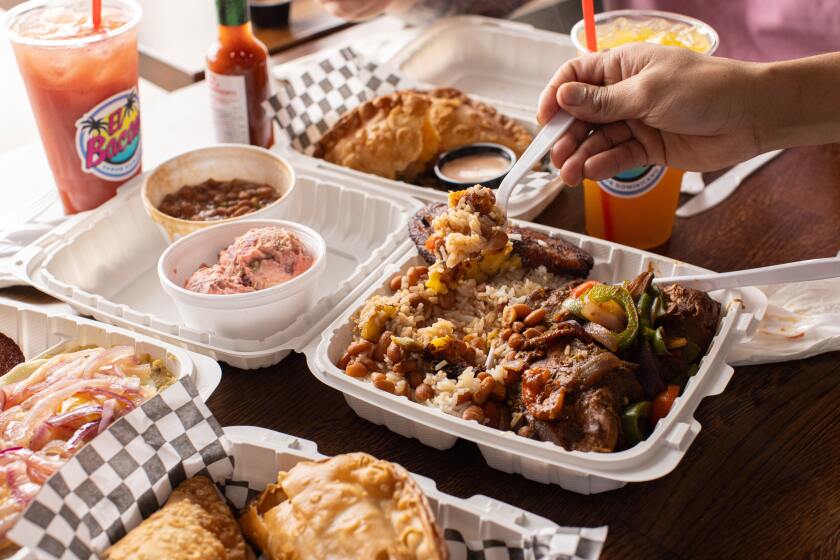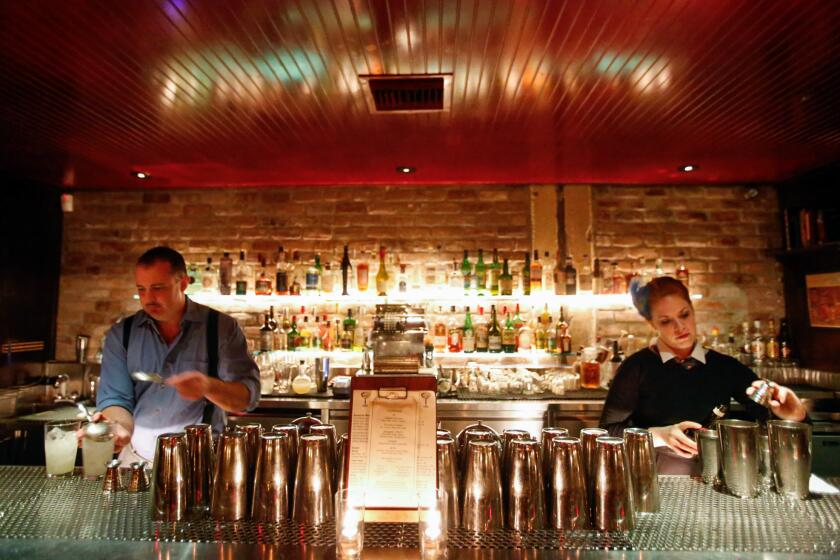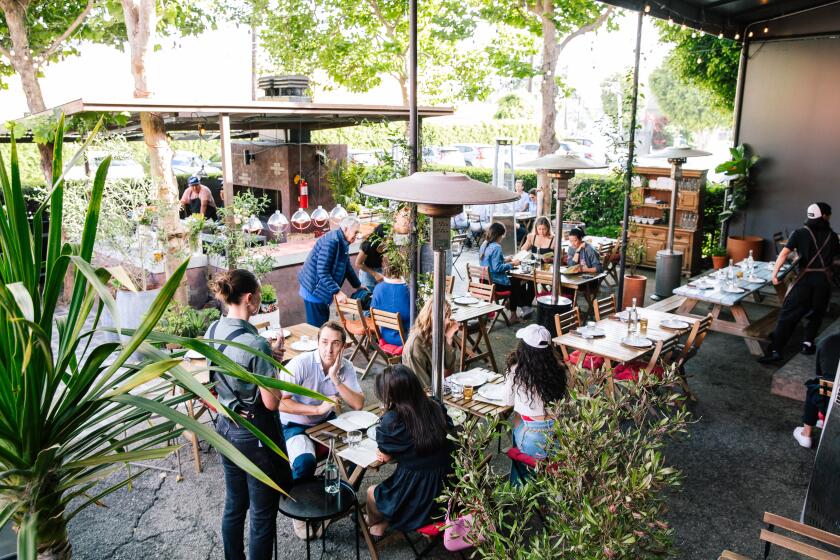How one restaurateur is feeding Beirut in crisis
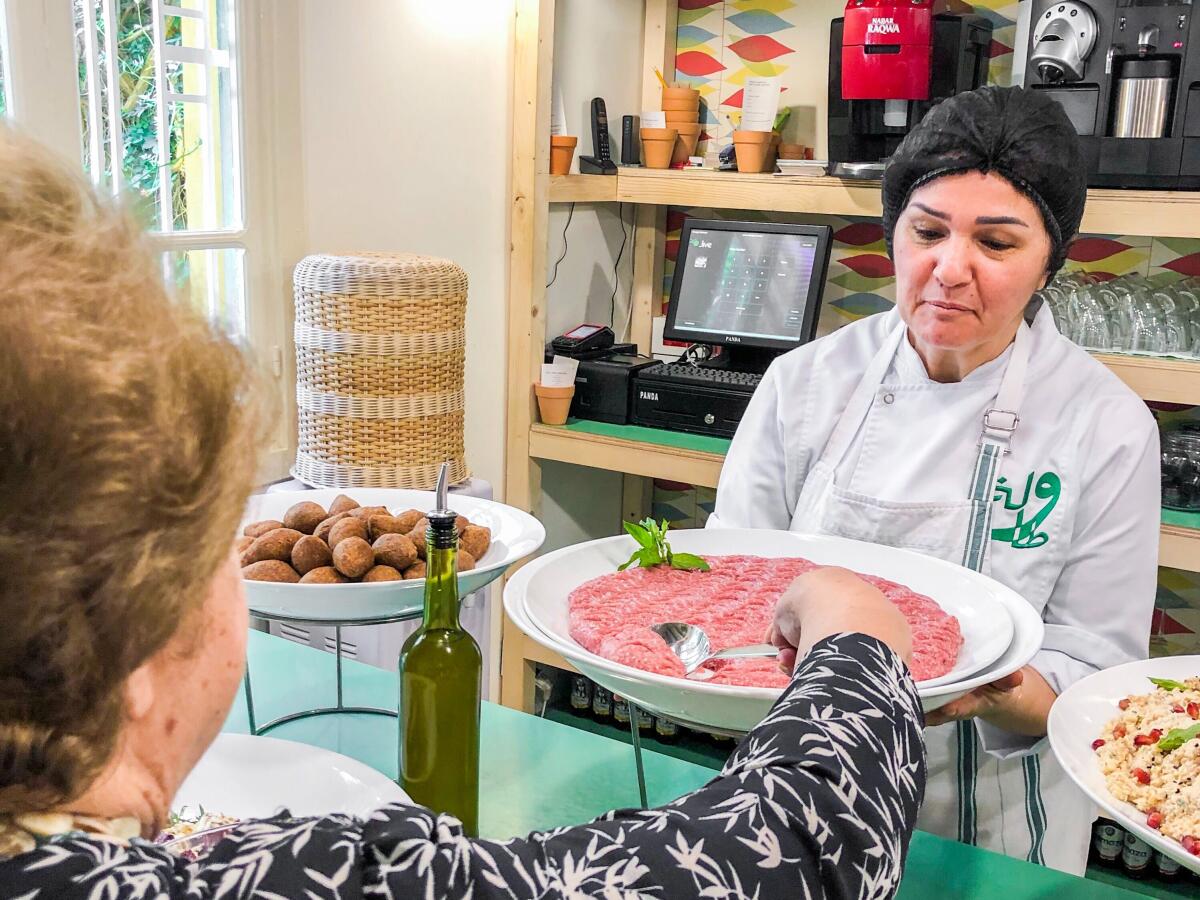
“Today we made food for 800 people,” Kamal Mouzawak said on Friday, calling from one of his Tawlet restaurants in Beirut. The meals went to overcrowded hospitals, homebound elderly and rescue workers responding to the devastation after the explosion at the port of Beirut on Tuesday evening.
It was the first day a handful of Mouzawak’s staff joined with team members from World Central Kitchen, the global nonprofit founded by chef José Andrés, to make Lebanese comfort foods: molokhia, the soup of pureed jute leaves bolstered with chicken, and sandwiches filled with hummus and vegetables or grilled kafta.
Eat your way across L.A.
Get our weekly Tasting Notes newsletter for reviews, news and more.
You may occasionally receive promotional content from the Los Angeles Times.
Tuesday’s explosion decimated swaths of the city; buildings that had survived the country’s 15-year civil war were destroyed. Its force left more than 150 people dead, at least 5,000 injured and 300,000 without homes. I’ve spent the week watching the news unfold in Lebanon and reaching out to loved ones. If you follow my work, you might know of my heartfelt connection to Lebanese culture through my closest friend and her family. And please, please read the firsthand account from Nabih Bulos, the Middle East bureau chief for the Los Angeles Times, who lives in Beirut; he miraculously survived the blast while he was just 500 yards away on his motorcycle.
Mouzawak is one of Beirut’s most prominent restaurateurs; his businesses employ women who cook daily-changing menus comprising the dishes of their village or region. I met him during a trip to Beirut last summer at an outpost of Tawlet (the word means table in Arabic) in the dense, commercial Hamra neighborhood. Lebanon’s economic crisis, compounded by the pandemic, put the location out of business in May.
Amid international calls for aid and accountability, the government is still investigating the cause of the detonation, which ignited 2,750 tons of ammonium nitrate stored in the port area. One Beiruti friend who lived through the war described looking at the city now as an out-of-body experience.
Mouzawak’s partner sustained a head injury and their home was damaged. “It took me two days to even start thinking again,” he said, “and then World Central Kitchen contacted me on WhatsApp.”
Sam Bloch, director of field operations for WCK, arrived in Lebanon on Wednesday; he and Mouzawak met on Thursday and began feeding people the next day. Mouzawak says the plan is to partner with WCK for the next few weeks, and then he intends to set up an ongoing community kitchen to feed people in need.
In the meantime Tawlet is beginning to receive food donations, including lamb and vegetables from the nearby Beqaa Valley. Food insecurity in Lebanon looks dire. The explosion wiped out reserves of grains stored near the port; Lebanon imports 85% of its food, according to a statement from the United Nations’ World Food Programme.
“It’s not like I can walk into Walmart or Whole Foods to buy ingredients,” Mouzawak said.
He recalled a recent conversation with a friend who was packing to leave and said to Mouzawak, “This is a dead region.” The words galvanized Mouzawak. “If it’s a dead region, then someone needs to make it alive. Who will do it?” he asked, adding, “Listening to him felt like answering a question for myself. The right thing is to not close for business. If we’re not a restaurant, then we’re a live market that encourages new ways of thinking. You don’t need light in a light place; you need light in the darkness.”
Here are some places to donate that Lebanese friends have recommended:
The Lebanese Red Cross is the country’s primary supplier of ambulance services.
Impact Lebanon, a nonprofit focused on volunteerism and humanitarian relief efforts, has already raised nearly $7 million. The group carefully vets other non-sectarian, non-governmental organizations to which to donate that are transparent about the recipients of their donations. Recipients during the current crisis include the Lebanese Red Cross and Arc En Ciel, an NGO that supports marginalized communities.
The Lebanese Food Bank is committed to feeding the homeless, hospital workers and volunteers cleaning the streets.
Offrejoie is an NGO focusing on restoring and cleaning homes and also providing shelter to those who have lost their homes.
And a GoFundMe account has been set up for Tawlet and the farmers market founded by Mouzawak that inspired the restaurants, Souk el Tayeb.
Enjoying this newsletter? Consider subscribing to the Los Angeles Times
Your support helps us deliver the news that matters most. Become a subscriber.
L.A. Food Bowl returns ... in virtual form
The Los Angeles Times Food Bowl, usually held as a monthlong series of events in May, is being held this fall in virtual form, with World Central Kitchen and the Los Angeles Regional Food Bank as partners. Events include a cook-a-thon fundraiser Oct. 17; cooking editor Genevieve Ko, cooking columnist Ben Mims and senior food writer Jenn Harris will cohost 30 chefs and celebrities from Los Angeles, the nation and the world. The Food team compiled an accompanying guide for the year’s theme, “Takeout and Give Back.”
Closer at hand, an L.A. Times Dinner Series kicks off Sept. 5 with a three-course collaboration meal between Jon Yao of Kato and Mei Lin of Nightshade; the menu includes dry scallop porridge and pork belly ssam. Dinners will be picked up on the day of the event, and my colleague Lucas Kwan Peterson will host a video chat with the chefs while participants dine together online.
Have a question for the critics?
Top stories
— Lucas Kwan Peterson and Brian Park write a remembrance of Hee-sook Lee, who founded the popular BCD Tofu House restaurant chain, helped cast a worldwide spotlight on Korean cuisine and died July 18 after a five-year battle with ovarian cancer.
— Samantha Masunaga covers the controversy around Trader Joe’s and its response to calls of racism in product lines with names such as Trader Ming’s and Trader José’s.
— Jake Sheridan reports on prepared food vendors who sell at farmers markets fighting a coronavirus ban.
— Garrett Snyder has the story on the closing of José Andrés’ Bazaar and Somni after a lawsuit filed by the owners of the SLS Beverly Hills.
— And, from Genevieve Ko, something we could all use this week: “life-giving” cilantro-lime rice, maybe to go with fig mole over poached chicken, from chef Christy Lujan-Kist of Cacao Mexicatessen.
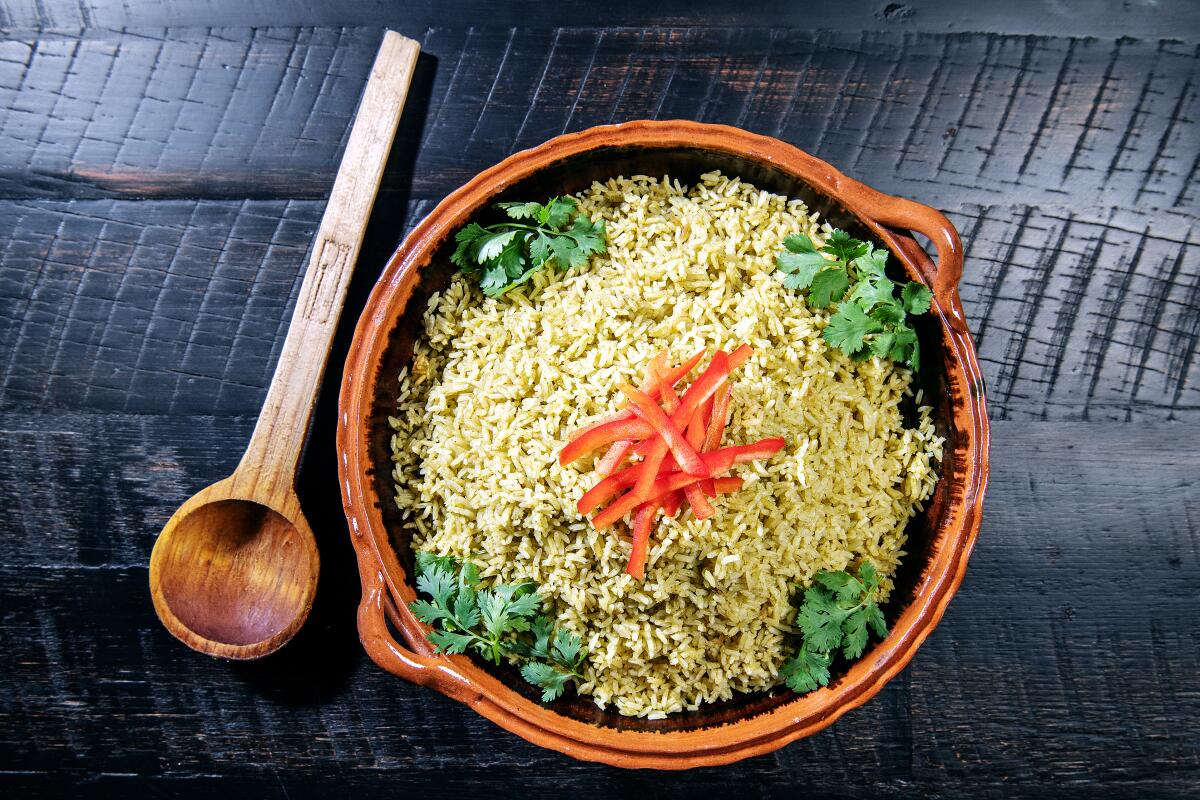
Eat your way across L.A.
Get our weekly Tasting Notes newsletter for reviews, news and more.
You may occasionally receive promotional content from the Los Angeles Times.
